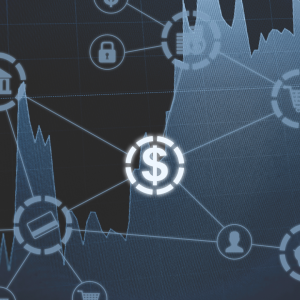With the financial market feeling the pinch, there are some big questions about the future of fintech. Will some markets fare better than others? What does this mean for investors and businesses? And what’s going to happen next? In this episode of Outvise Insights, fintech expert and founder of Fintech Review, Tristan Pelloux tells us what we need to know.
Navigating the fintech bubble in an evolving economic landscape
Recent reports suggest that nearly a trillion dollars have been wiped from the valuation of fintech companies, leading to questions about the so-called fintech bubble. What’s happening to fintech, you ask?
The economic landscape has shifted significantly in recent months, causing turbulence in the fintech industry. Inflation is soaring, interest rates are climbing, and the spectre of a looming recession is becoming more tangible. This change has left investors more cautious, scrutinizing companies not just for their potential but for their profitability and sustainability.
One high-profile example is Klarna, which recently secured $800 million in funding, albeit at an 85% drop in valuation compared to 2021. This underscores the challenges that even prominent fintechs are facing. Companies that grew rapidly, relying on a seemingly endless stream of capital, are now faced with the reality of profitability. Investors are demanding a clear path to sustainability, which is becoming a defining factor for survival in the fintech landscape.
So, what can fintechs do in this turbulent environment? It’s all about reevaluating their business models, focusing on profitability, cost-cutting, and perhaps, restructuring. Companies must seek investors who share their vision and understand their path to profitability, as those without a clear plan may not weather this storm.
This cleansing period in the fintech industry will likely lead to a more robust and sustainable ecosystem. The survivors will emerge stronger, while investors and end-users will benefit from greater transparency, improved services, and more strategic partnerships between startups and incumbents.
But how long will this slump last? It’s tied to the broader economic outlook. As the cleanup continues, with some companies falling by the wayside, the survivors will eventually usher in a new era of fintech innovation. It might take a year or two for the dust to settle, the weak to be pruned, and the industry to regain its footing.
In summary, while the fintech bubble may be deflating, it’s paving the way for a more resilient and innovation-focused industry. Focus, sustainability, and strategic alignment with market demands will be crucial for companies navigating these stormy waters in the fintech bubble era.
For more insights on this topic and discussions about the evolving landscape of business, technology, and the future of work, tune in to Outvise Insights. To explore opportunities in the freelance marketplace, visit Outvise and create a free account today.
Director at Strategwhy, Independent Strategy Consultant, and Chief Pencil Officer at Fintech Review, online media on the Fintech industry.




No comments yet
There are no comments on this post yet.